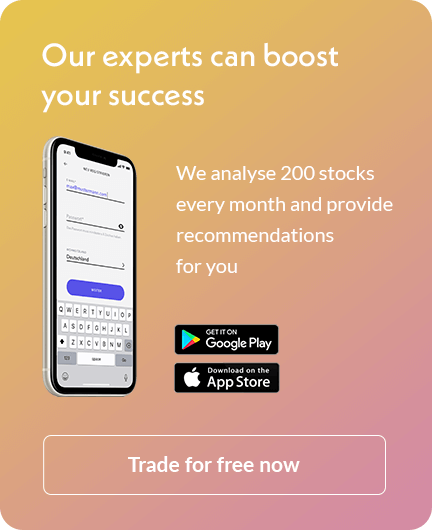What is cryptocurrency?
It is hard to go a single day now without hearing something about the meteoric rise of bitcoin or how another blockchain network will revolutionise an industry. Cryptocurrencies have been changing the way we own currency, and conduct business.
In 2021, there are now over 6000 cryptocurrencies that can be traded, used to purchase goods and services, or to fuel advanced blockchain technology servicing businesses leveraging ‘Decentralised Finance’ applications. To trade cryptocurrencies for profit or future-proof your business, you’ll want to learn all about cryptocurrencies, their function, and how to best benefit from this digital asset.
❗ Disclaimer: Currently, at nextmarkets you can only trade CFDs on Bitcoin, Ethereum, Litecoin and Bitcoin Cash!

Basics
Before you start asking questions like, what is bitcoin, you should start with some crypto basics. Cryptocurrency is a form of digital asset, designed and built to act as a decentralised virtual currency. Cryptocurrency is secured through cryptography on a network distributed across a massive number of computers. The use of cryptography makes counterfeiting virtually impossible. Leveraging blockchain technology, cryptocurrencies are theoretically immune to government manipulation and interference.
So how does a cryptocurrency get its value? There are a few factors that influence the value of a cryptocurrency. While it is still generally a matter of supply and demand, how quickly market adoption occurs can also play a large contribution to a cryptocurrencies value. Take a look at bitcoin – As the amount of bitcoin left to mine reduces and more and more financial institutions choose to adopt the crypto, the valuation rises.
Cryptocurrency is a highly liquid and volatile marketplace. When trading cryptocurrency, a trader is buying ownership of their chosen digital asset. However, when one considers the current value of Bitcoin in 2021, a lot of capital may be required. Thankfully, cryptocurrencies can also be traded as a CFD, allowing retail investors to place speculative trades on future price movements.
Crypto in cryptocurrency
Cryptography is the technique of sending a secure message whereby the sender encrypts a message using a key or algorithm and the recipient decrypts the message. This process is a vital component of cryptocurrency.
Typically, when trading in cryptocurrency, an asset holder is given a public address and private key in order to send and receive cryptocurrency. The public address acts as the location for your cryptocurrency but without the unique private key, the public address cannot be accessed – Imagine that the public address is a storage locker and the private key as the only way to access the lock.
If a private key is lost, or stolen a crypto trader would lose access to all their funds at the associated public address. The private key is imperative to the security of your crypto funds. While the private key is for the owner alone to access their public address, the public key is used to send and receive cryptocurrency.
The public key is generated through a highly sophisticated algorithm and will act as a user’s digital signature. When facilitating a transaction on the blockchain, it will request that the transaction be digitally signed by the parties, before being broadcasted on the network.
Decentralisation
You’re going to be wondering, what is cryptocurrency decentralisation. The main purpose of cryptocurrencies is to create a decentralised network, free from government control and central authority. Decentralisation provides a trust-less environment in which no participant needs to trust or even know anyone else. Weak points, such as those leading to outages, bottlenecks or even corruption, can be avoided.
A decentralised network also optimises the distribution of resources, making sure that catastrophic failure is avoided whilst simultaneously providing services at a greater performance and consistency.
What is the blockchain?
So the obvious question, right? What exactly is the blockchain? In a nutshell, a backchain is an irrefutable ledger that records all transactions and asset tracking on a shared network. The blockchain is incredibly important in the crypto world, as literally anything of value can be tracked using blockchain technology.
But the blockchain has more than one purpose – it’s not just about tracking cryptocurrency transactions. Since modern-day business is built on information, fast and accurate transfer of information is everything. Blockchain networks can be built to track shipping orders, payments, production accounts, and so much more.
How does it work? Blockchain explained
You’ll certainly be asking yourself, what is cryptocurrency blockchain technology? Consider a blockchain as a collection of blocks. Within a data block is a record of information transaction – that is, it can be the complete who, when, what, and where. Each block is connected to the next block and the block that came before it. The blocks link securely, ensuring that no block on the chain can be altered in any fashion.
The chain is irreversible. Each block strengthens the chain even further. The blockchain is tamper-evident and builds a network that can be trusted by its members. Understandably, the technical side of this can be difficult to wrap your head around but thankfully, one doesn’t need to fully understand the blockchain in order to trade cryptocurrencies.
Decentralized finance (DeFi)
Understanding the future of cryptocurrency is vital to speculative trading of cryptocurrencies. One of the most important and recent advancements in crypto technology is the concept of building financial products on a decentralised blockchain network rather than the traditional system of brokerages and banks.
At the forefront of this technological advancement is ‘Smart Contracts’, the ability to automate agreements between two parties. Cryptocurrency fuels this technology by acting as the tokens to finance and build decentralized applications on a blockchain network.
Decentralised finance tokens are an increasingly growing investment vessel and its positive performance drives the growth of many other cryptocurrencies such as Bitcoin and Ethereum. What is Ethereum? The 2nd largest cryptocurrency in the world offers the most actively used blockchain and is a pioneer in decentralised finance.
Cryptocurrency tokens
You’ll usually hear about tokens a lot when a new cryptocurrency launches, but what is a cryptocurrency token? Also commonly referred to as a crypto asset, crypto tokens are a unique kind of virtual currency token that represent an asset or utility within a specific blockchain. The most common use of cryptocurrency tokens is during an Initial Coin Offering (IPO), where they are used to fundraise for crowd sales.
There are other purposes too. A crypto token may represent an entitlement such as the streaming of an album, or represent an allotted amount of cryptocurrency on another blockchain. Whilst a cryptocurrency is a virtual currency, with a dedicated blockchain, a crypto token acts as a medium to create and execute functions on a blockchain. For example, this could be decentralised apps, smart contracts or even a means to facilitate a transaction. It gives you a wide practical application and you’ll find that these tokens are pretty versatile.
Cryptocurrency wallet
While obviously not the same leather wallet or purse that holds your local cash currency, what is a cryptocurrency wallet? A cryptocurrency wallet is either a physical or digital system used to store, send, and receive cryptocurrency. Most major coins will have an associated crypto wallet but there are many alternatives.
It is important to note that cryptocurrency is not actually stored in a wallet, rather it is a tally on how much currency you hold. The actual currency is always stored on the coins blockchain. A wallet is simply a means to interact with that blockchain.
Cryptocurrency wallets can be broken up into two distinct categories; Hot and cold. The major difference between the two is a connection to the internet. But exactly what is a hot and cold cryptocurrency wallet?
Hot wallet
A hot wallet is the most commonly used cryptocurrency wallet owing to simplicity and an easy set up. Hot wallets are always connected to the internet and that allows for seamless transaction of currency at exchanges or between other individuals. These wallets are designed for everyday crypto users because of the fast access to their assets and most cryptocurrency exchanges use hot wallets.
However, hot wallets are a security risk. Storing large amounts of digital currency in a hot wallet is inadvisable as one is most exposed to potential cyber security threats such as theft. Many professional crypto traders will store tradable currency in a hot wallet, and the bulk of their investment in a cold wallet.
Most cryptocurrency exchanges provide traders with custodial wallets, whereby the private key is actually controlled by the exchange. Many software apps exist for both PC and smartphones that allow crypto traders to access their funds from their devices.
Cold wallet
Cold wallets are the most secure way to store your cryptocurrency since they are not connected to the internet. Cold wallets are only connected to the internet when making a transaction, thereby significantly minimising the risk of cyber theft.
The most common form of cold wallet is a hardware wallet. Hardware wallets are a physical medium, such as a USB-like device, to store your private keys. The device can be disconnected from the internet making the device near impenetrable by hackers or cyber criminals. Cryptocurrency is safely stored by sending currency from a hot wallet to the public address of your hardware wallet. Whenever you choose to make a transaction, the hardware wallet can be connected to the internet via the device’s dedicated software and transaction can then be signed using your private key.
Paper wallets are the most secure way to protect your digital currency from cyber-attacks. Paper wallets are exactly what they sound like – A physical copy of your public wallet address and your private key. Commonly, paper wallets are a card or paper with your crypto information written on it. So long as the paper wallet is secured safely, your cryptocurrency cannot be stolen. A hot wallet is required to conveniently make crypto transactions with a paper wallet – a trader would scan their private key in order to buy cryptocurrency.
Cryptocurrency exchange
Now that you know all about crypto technology, you’ll be asking yourself how to buy cryptocurrency? Like any financial instrument, there needs to be a platform in which to trade. A cryptocurrency exchange is an online platform that allows users to exchange one digital asset for that of another based-on market value. Sound familiar? It’s not all that dissimilar from trading forex – in fact, a few cryptocurrency exchanges will even allow for fiat trading of cryptocurrencies.
Some often confuse crypto exchanges and wallets to be one and the same, but this is not true. While some cryptocurrency wallets allow you to buy and sell digital assets, they do not cover a vast range – If you want to trade stellar or Ripple, but your crypto wallet only allows for Bitcoin and Ether, then you’ll no doubt require an exchange.
Setting up an account at a trusted cryptocurrency exchange will allow you to trade in thousands of cryptocurrencies from your crypto wallet. Cryptocurrency exchanges are especially required if you wish to cash out a less accepted or known altcoin. This is because most crypto wallets do not have a gateway to process international fiat currencies. Crypto exchanges solve this problem – trade your altcoins for basic coins, such as Ether, and then send those coins back to your cryptocurrency wallet, where you can cash out.
The issue of custody – What is cryptocurrency ownership
You may have already heard of the phrase ‘Who owns your cryptocurrency’? The majority of digital asset trading occurs on centralised exchanges (CEX) and these exchanges will often require custody of your digital asset. Sacrificing custody is common in other institutions such as banking where assets are held by the institution to accrue interest.
Of course, this is the very issue at the heart of the creation of bitcoin, the very first cryptocurrency, back in 2009. The issue of custody is being addressed by crypto platforms such as the Ethos Universal Wallet.
Advantages of trading cryptocurrency
Whether taking ownership of a digital currency asset or simply speculating on price movement by trading CFDs, there are a great deal of advantages to trading cryptocurrency.
- High liquidity – Unlike any other financial marketplace, cryptocurrency exchanges operate 24 hours a day. That means you can buy and sell crypto assets at any time of your choosing.
- High volatility – The crypto market is filled with short-term speculation. This creates a highly volatile marketplace and with new technologies being developed regularly, this volatility is sure to continue.
- Low fees – Cryptocurrencies are traded at significantly lower fees than both stocks or forex trading.
- Divisible investment – Since cryptocurrencies are a divisible asset, you can buy very small fractions. Perfect for traders with a low investment threshold and accessible to all levels of trader.
- High transparency – As you now know about the blockchain, cryptocurrency transactions are irrefutable. Blockchain technology ensures all records are reliable, transparent, traceable, and completely free from alteration.
Conclusion
With over 6000 digital assets, within a 24/7 market, cryptocurrencies are one of the most highly liquid and volatile tradable financial instruments. More than just a digital currency, cryptocurrencies can be used to fuel the creation of blockchain applications that are revolutionizing the business world.
Cryptocurrency can be owned as a digital asset, held in a cryptocurrency wallet and traded over crypto exchanges. Retail investors can enter the market with low levels of capital by speculatively trading the digital currency as a CFD.
Cryptocurrency explained FAQ
- What is price action?
- Forex vs Stocks - Which is more profitable?
- Trading the news in forex
- What is forex lot size?
- How to trade forex? 2023 Guide for Beginners
- What is forex market?
- Currency trading for beginners
- What are ETFs
- Stock market analysis - How to research stocks 2023
- How to short stocks
- How to buy stocks
- What are stocks, shares and equities?




